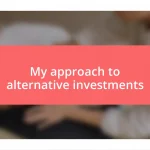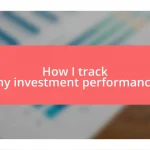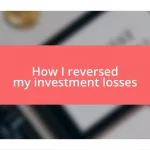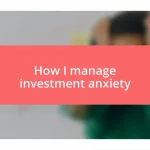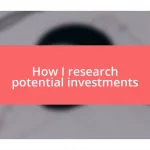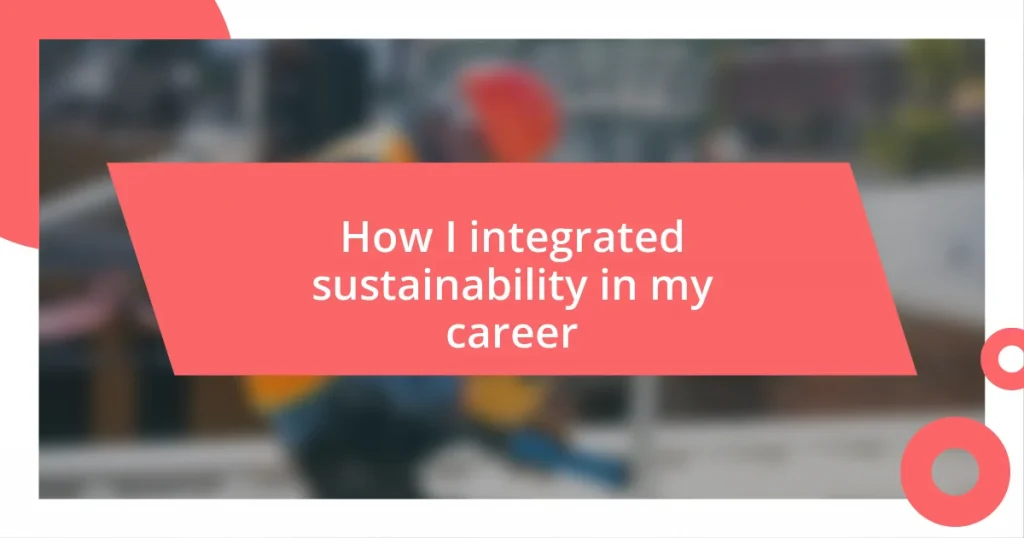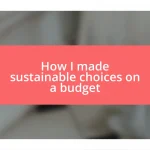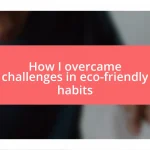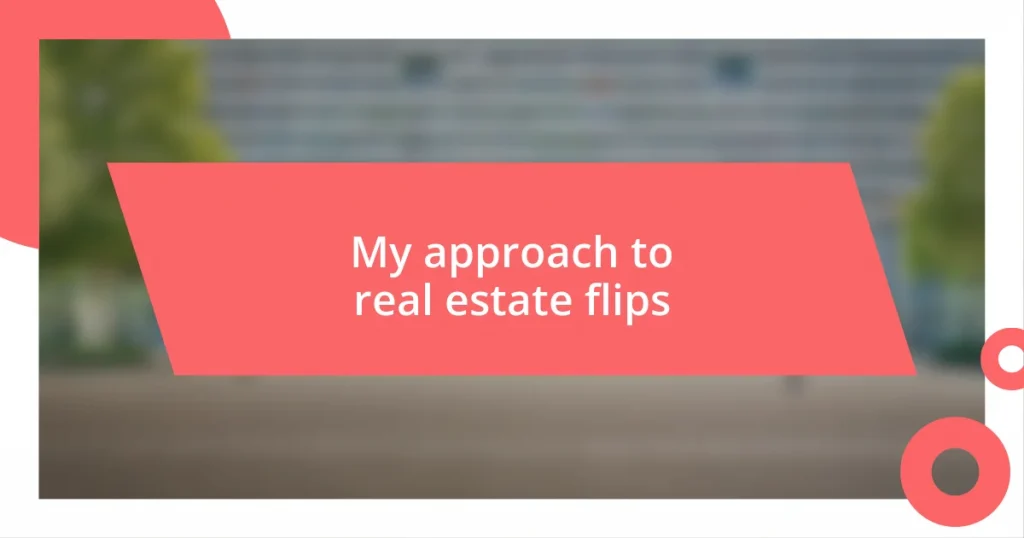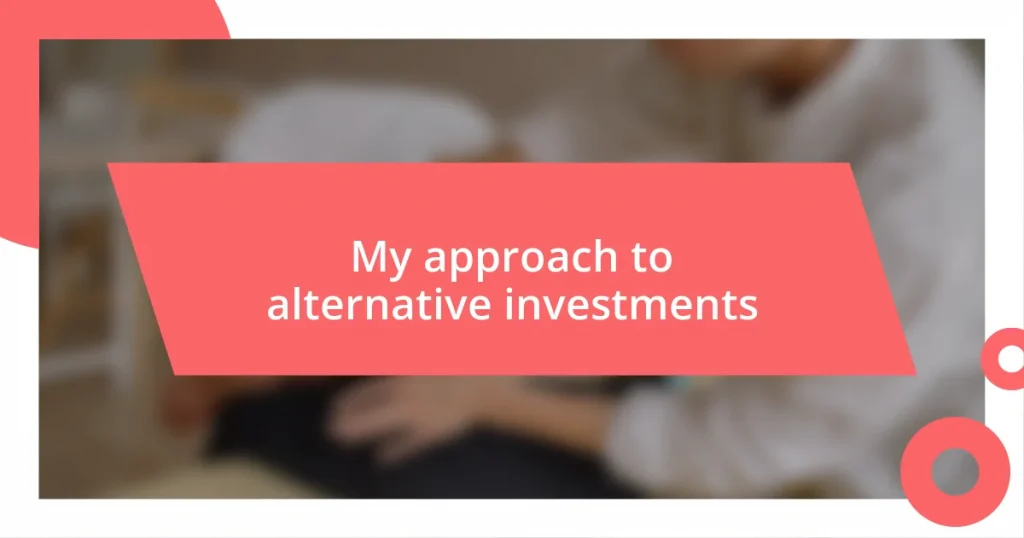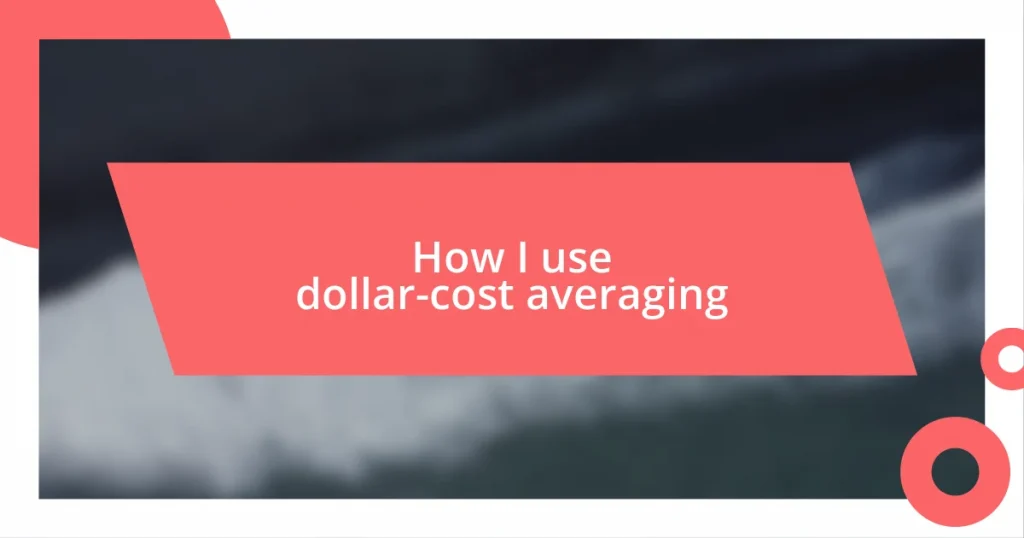Key takeaways:
- First encounter with sustainability during a college project ignited a passion for advocating sustainable practices in personal and professional life.
- Identifying sustainable career options led to alignment of personal values with professional aspirations, highlighting the importance of networking and mentorship.
- Continuing education in sustainability not only enhanced career growth but also empowered the implementation of impactful initiatives within the workplace.
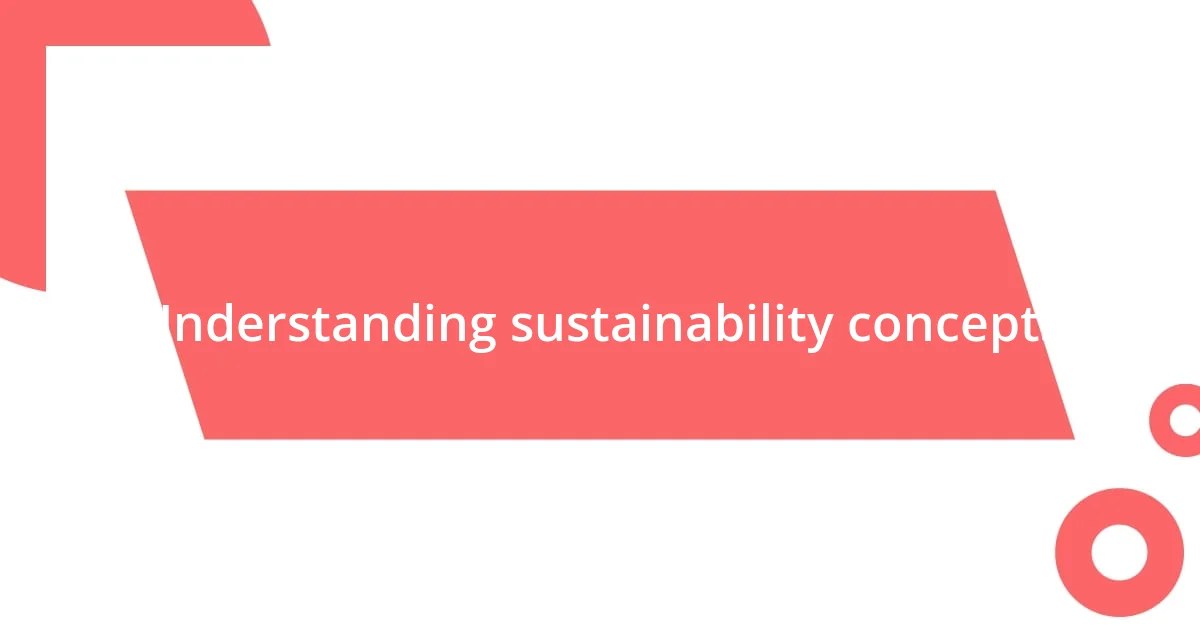
Understanding sustainability concepts
Sustainability, at its core, is about finding harmony between our needs and the health of our planet. I often reflect on my first encounter with the concept during a college project focused on environmental impacts. It was eye-opening to see how our daily choices ripple out, affecting ecosystems and communities.
When delving into sustainability, I realized it isn’t just a buzzword; it’s a holistic approach that includes social, economic, and environmental dimensions. Have you ever thought about how your habits contribute to a larger cycle? For me, reducing my waste felt empowering, as I began to see tangible changes in my life and the world around me.
I’ve come to understand terms like “renewable resources” and “carbon footprint” not just as jargon but as essential concepts guiding my choices. It was during a community cleanup event that I felt the real weight of these definitions. Seeing volunteers come together to make a difference sparked a passion in me for advocating sustainable practices, both personally and professionally.
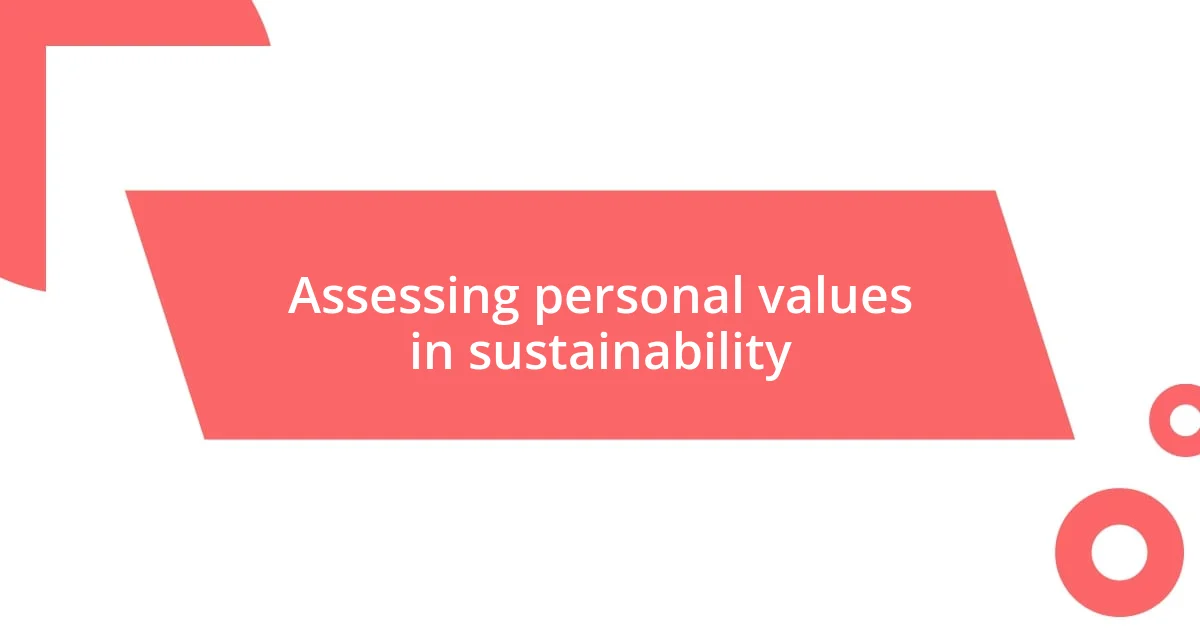
Assessing personal values in sustainability
Assessing personal values in sustainability involves a deep dive into what truly matters to us. I often think about the values that shape my decisions, especially when it comes to how I interact with the environment. During a recent reflection, I discovered that my love for nature and community service are integral to my approach to sustainable living. I realized that aligning my career choices with these values not only felt right, but also created a sense of purpose that drives me each day.
To help clarify my personal values in sustainability, I’ve created a simple bullet list that outlines what resonates most with me:
- Respect for Nature: I’ve always felt a deep connection to the natural world, which fuels my desire to protect it.
- Community Engagement: Volunteering gives me a sense of belonging and reinforces my commitment to local environmental efforts.
- Continuous Learning: Staying informed about sustainable practices energizes me and helps me adapt my lifestyle.
- Equity and Inclusion: I believe everyone has a role in sustainability, and diverse perspectives lead to better solutions.
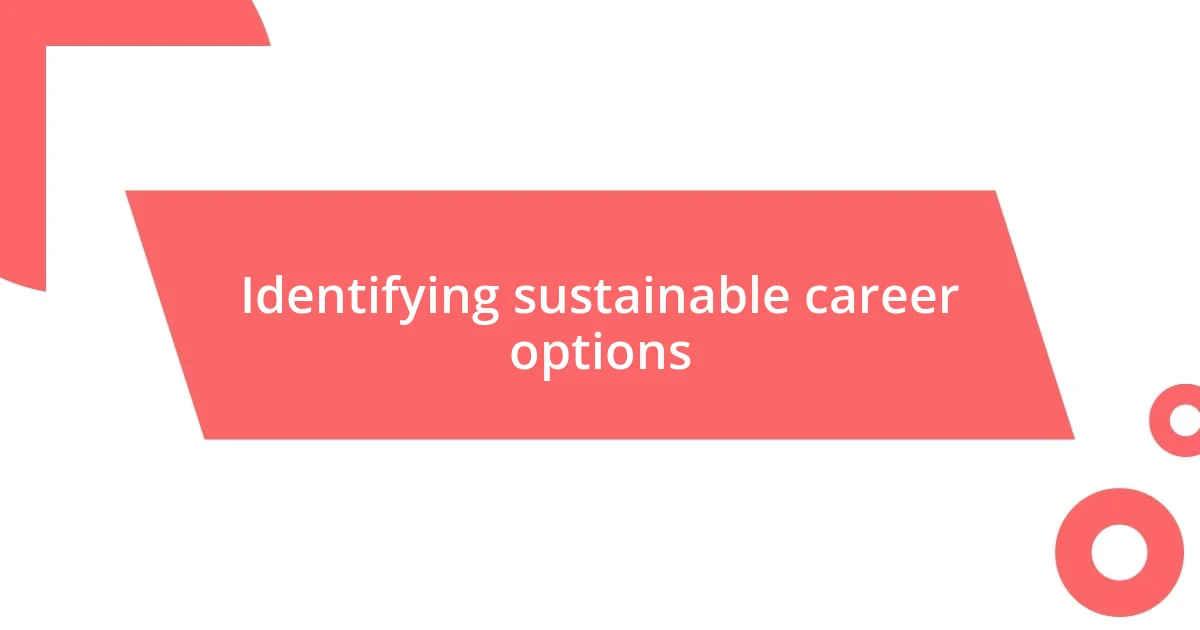
Identifying sustainable career options
Identifying sustainable career options is about more than just picking a job; it’s about aligning your passions with the growing need for environmental stewardship. When I was exploring career paths, I noticed that some roles, like those in renewable energy or sustainable agriculture, seemed not only profitable but also meaningful. I remember attending a green jobs fair where I spoke with someone who worked in urban forestry. Their enthusiasm for how planting trees could combat climate change was contagious and prompted me to think about how I could channel my skills towards similar impacts.
Navigating through various industries, I discovered that sustainability is now integrated into fields like marketing, finance, and even tech. It’s exciting to see businesses recognizing their responsibility in promoting ethical practices. For instance, I worked with a local company that emphasized sustainable sourcing in their products. This approach struck a chord with me; it was fulfilling to help shape a brand that stood for environmental integrity while still achieving business success. Engaging in conversations with professionals in these areas revealed countless opportunities just waiting to align with my career aspirations.
When identifying sustainable career options, it really comes down to personal passion and societal impact. I found that networking with like-minded individuals can unveil paths I hadn’t considered before. During a mentorship session, a mentor shared how their background in engineering led them to develop energy-efficient technologies. Their journey inspired me to look beyond traditional roles and consider how my unique skills could contribute to a sustainable future. Taking those initial steps opened a world of possibilities, encouraging me to take risks and pursue what fuels my desire to make a substantial change.
| Career Option | Key Focus Area |
|---|---|
| Renewable Energy | Solar, wind, and other sustainable power sources |
| Sustainable Agriculture | Organic farming and ethical food production |
| Green Technology | Innovative solutions to environmental challenges |
| Sustainable Fashion | Eco-friendly materials and ethical labor practices |
| Corporate Sustainability | Integrating sustainable practices in business operations |
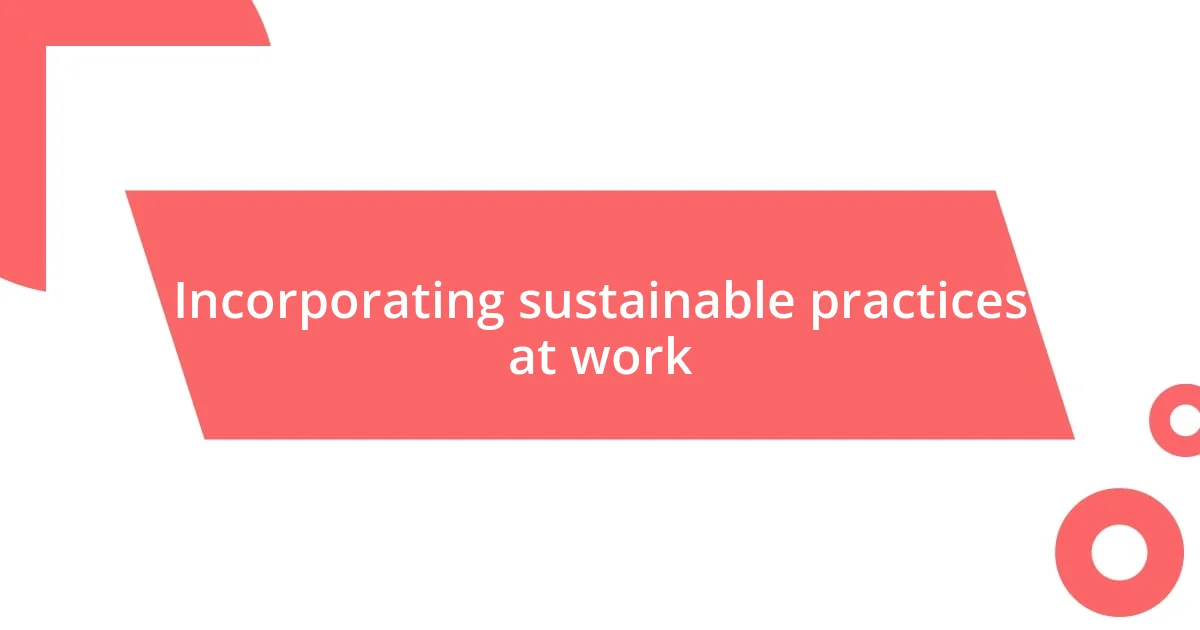
Incorporating sustainable practices at work
In my journey to incorporate sustainable practices at work, I began by making simple changes in my daily routine. For example, I swapped single-use plastic bottles for a reusable one and encouraged my colleagues to do the same. Have you ever noticed how little actions can spark a larger movement? That small step led to group brainstorming sessions about reducing waste in our office, and soon we were implementing recycling programs and cut down on paper usage.
I also took initiative by designing a “green team” at work, bringing together others who shared my passion for sustainability. We organized workshops on energy efficiency and even partnered with local organizations to host cleanup events in our community. Seeing my colleagues light up with enthusiasm during these activities was incredibly fulfilling. It was a reminder that working together can amplify our individual efforts. Have you considered how collaboration can enhance sustainable initiatives in your workplace?
Moreover, I realized that sustainability wasn’t just a checkbox on a list; it became part of our company culture. As we developed smarter resource management practices, I felt a growing sense of pride in being part of a workplace that prioritized both environmental and social responsibility. This shift encouraged conversations about sustainable innovation and inspired us to think creatively about our impact—whether it was through sourcing ethical materials or supporting local artisans. Isn’t it empowering to be part of a team that not only talks about change but actively pursues it?
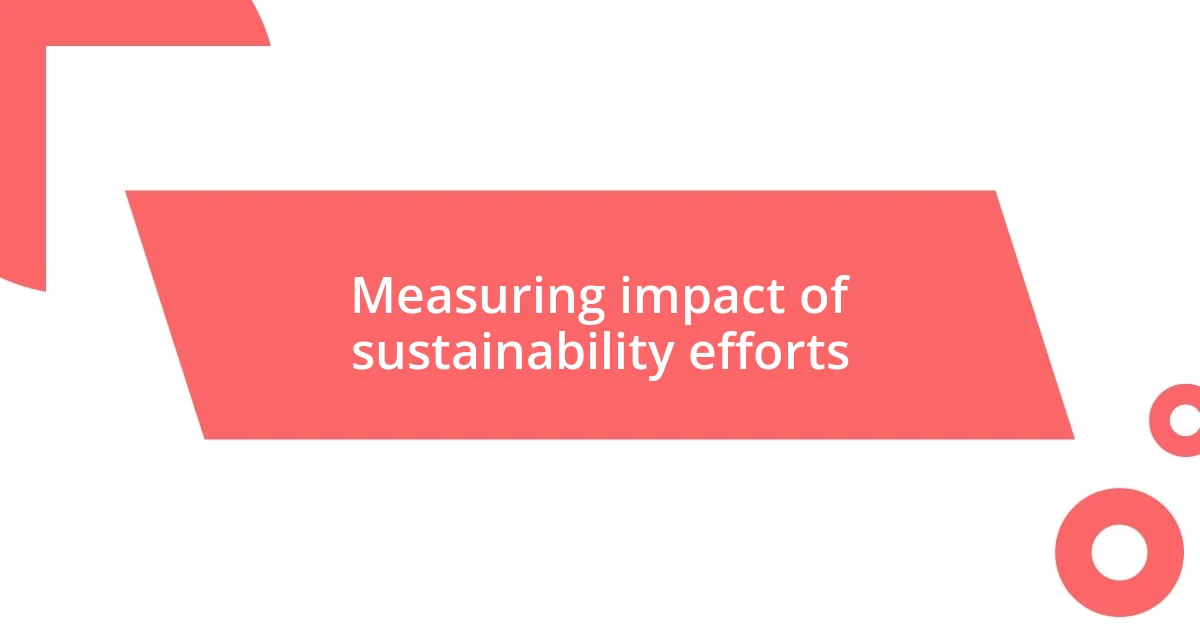
Measuring impact of sustainability efforts
Measuring the impact of sustainability efforts is crucial to understanding how our actions resonate. One of my first experiences involved tracking the recycling rates at work after we launched our new program. I remember the moment when our numbers showed a significant increase; it felt like a tangible victory. Seeing those metrics illustrated how our small changes led to greater environmental benefits opened my eyes to the power of data in driving sustainable practices.
I didn’t stop at recycling; I began implementing energy audits to measure our consumption patterns. It was enlightening to analyze energy usage, especially when we identified peak hours and made adjustments that actually reduced costs. Have you ever felt that rush of excitement when you realize your efforts are quantifiably making a difference? In my case, the feedback loop between the audits and our monthly meetings fostered a culture of continuous improvement.
Furthermore, I learned the importance of setting specific, measurable goals for sustainability. For example, our team aimed to reduce our carbon footprint by 20% over five years. It wasn’t just about reaching the target; it also sparked a friendly competition amongst departments to innovate and share ideas. Reflecting on that journey, I can’t help but feel proud that our collective efforts resulted in both significant savings and a genuine commitment to sustainability. How has measuring your own impact changed the way you view your role in promoting sustainability?
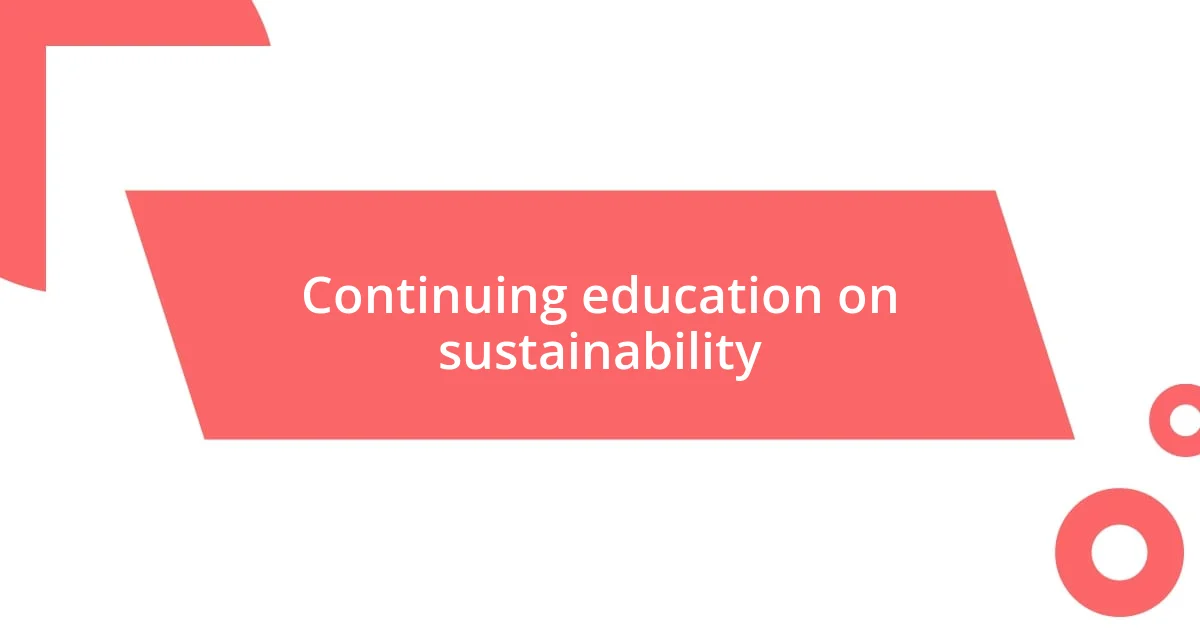
Continuing education on sustainability
Continuing education in sustainability became a game-changer for me. I enrolled in online courses and attended workshops, eager to learn about the latest developments and trends. I still remember my first seminar on renewable energy; the energy in the room was contagious. It motivated me to explore how those concepts could be applied within my own organization. Have you ever found inspiration from something you learned unexpectedly?
As I absorbed new knowledge, I shared insights with my colleagues during team meetings. One day, after learning about sustainable supply chains, I suggested a review of our own vendors. That discussion turned into a project that transformed the way we sourced materials. It’s fascinating to see how education can create ripples in a professional environment. When was the last time a learning moment prompted you to re-evaluate a process in your work?
My commitment to continuing education didn’t just enhance my career; it deepened my passion for sustainability. I remember the satisfaction of completing a certification course—it wasn’t just about the credential but the realization that each piece of knowledge was a tool in my sustainability toolkit. Armed with practical skills, I felt empowered to lead initiatives that aligned with our values. Isn’t it amazing how investing in your education can lead to greater empowerment and agency in your career?

